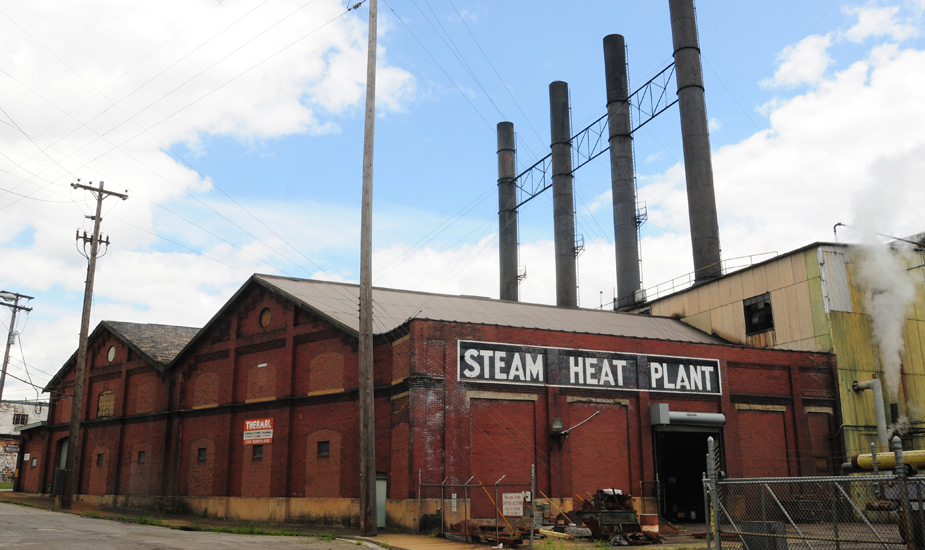Youngstown Thermal Goes Green with Biomass Fuel
YOUNGSTOWN, Ohio – Youngstown Thermal Inc. has initiated the transition from using natural gas to biomass fuel for its main source of energy.
The biomass fuel is wood waste that is liquefied and pumped from a new holding tank into Thermal’s steam generation plant near downtown. “It’s been modified in liquid form. It’s pumped into the boiler where it’s burned,” says Youngstown Thermal’s CEO, Carl Avers.
Youngstown Thermal is a district steam system that supplies heat and cooling to customers throughout downtown Youngstown. The operation started using the new biomass system on May 17, and daily fuel deliveries began at the end of May.
The wood waste is liquefied in Canada and transported to Youngstown Thermal. A wood waste liquefaction plant is scheduled to open in Pennsylvania soon, which could reduce transportation costs.
Using wood waste for fuel is nothing new, Avers says. “This material has been used for 25 years, and this puts it in a form that is much easier to handle. We first burned the material in 2014 and it proved satisfactory, so we proceeded with it,” he says.
What is new is that Thermal now has the infrastructure in place to use wood-derived biomass as its primary fuel on a permanent basis, which has a cost advantage over natural gas, he notes.
The U.S. government encourages companies to seek alternative sources for energy other than fossil fuels such as coal or natural gas. The benefits are two-fold, Avers says. First, the use of biomass fuel is less harmful to the environment. Wood waste that is simply thrown away turns into methane, which affects air quality. Second, using biomass fuel is less expensive than natural gas. “Even with low gas prices, this is still a lower cost,” he says.
Thermal’s biomass fuel initiative represents the first commercial use in a district heating system of wood derived biofuels under the U.S. Renewable Fuel Standards Program, according to Avers. The fuel supply will allow the company to reduce the community’s greenhouse gas emissions and produce and sell heating services with enhanced sustainability characteristics, he says.
Initially, wood waste will produce half of Youngstown Thermal’s energy, but that is likely to increase over a period of time.
“We’ll try to get it to as close to 100% as possible,” Avers says. “This biomass initiative will bring lower cost energy to our downtown customers and for our steam customers that are interested in sustainability goals – it helps them achieve these goals.”
Copyright 2024 The Business Journal, Youngstown, Ohio.


